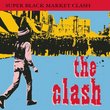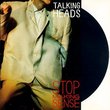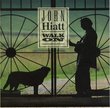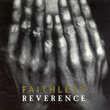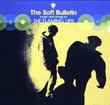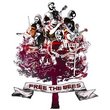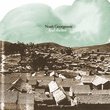| All Artists: Clash Title: The Clash (U.K. Version) Members Wishing: 8 Total Copies: 0 Label: Sony Release Date: 1/25/2000 Album Type: Original recording reissued, Original recording remastered Genres: Alternative Rock, Pop, Rock, Metal Style: Hardcore & Punk Number of Discs: 1 SwapaCD Credits: 1 UPC: 074646388228 |
Search - Clash :: The Clash (U.K. Version)
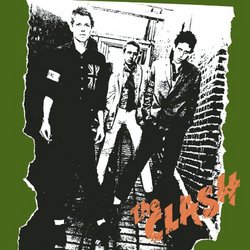 | Clash The Clash (U.K. Version) Genres: Alternative Rock, Pop, Rock, Metal
The Clash's label didn't believe this debut would sell in the United States. By the time CBS got around to releasing a stateside version of the U.K. album, the British original had become an import hit. While the U.S. rele... more » |
Larger Image |
CD DetailsSynopsis
Amazon.com The Clash's label didn't believe this debut would sell in the United States. By the time CBS got around to releasing a stateside version of the U.K. album, the British original had become an import hit. While the U.S. release contains outstanding tracks such as "Complete Control" and "Clash City Rockers," it's still missing "Cheat," "Protex Blue," "48 Hours," and "Deny." No matter which version you prefer, The Clash is a fearsome listen. Joe Strummer reviles the system at every turn, while Mick Jones wields his guitar like a switchblade. Yet even on their debut there are hints of future musical adventures. Junior Murvin's "Police & Thieves" is solid reggae, while "White Man in Hammersmith Palais" expertly interpolates the reggae groove into their punk attack. --Rob O'Connor Similar CDs
Similarly Requested CDs
|
CD ReviewsTake your pick from two versions Laurence Upton | Wilts, UK | 08/27/2007 (4 out of 5 stars) "The Clash were among the topmost important punk groups, having the power and the passion in spades, and a sincerely egalitarian ethos in the lyrics of Joe Strummer, who perhaps even more than John Lydon embodied the spirit of 1977. Their first album snarled into the shops in April 1977 in the UK and Canada, but was not available in America for over two years except on import, and was then released in a revised format, five tracks being replaced by various singles. Called simply The Clash, the original album was produced by their regular sound man Mickey Foote and engineered by Simon Humphrey at CBS Studio 3 in Whitfield Street, London during February 1977. The regular Clash line-up of Joe Strummer (vocal, rhythm guitar), Mick Jones (lead guitar, vocal) and Paul Simonon (bass guitar) was augmented by Terry Chimes, yet to become a full-time member at the time of recording, on drums. There are some classic Clash songs that were to remain in their repertoire throughout, and that stand up today. Indeed live versions of London's Burning, What's My Name and Career opportunities appear on the live album From Here to Eternity: Live, recorded between 1978 and 1982. The one cover version, added at the end of the sessions, was their tribute to Lee Perry, the Junior Murvin single Police And Thieves, to which they bring their own inimitable style very successfully. It led to Lee Perry producing the band and Bob Marley name-checking them on Punky Reggae Party. Other Clash favourites included Remote Control (later extracted as the second UK single), Janie Jones, I'm So Bored With The USA, Garage Land, and, of course, White Riot. The version of White Riot heard on The Clash is not the version released as their first UK single and is the sole track on the album not to have been recorded at Whitfield Street. Inspired by the Notting Hill Riots of 1976, it had been in their repertoire since September 1976, usually played considerably faster than either of the recorded versions, and had been demoed for Polydor in November before they signed with CBS. The LP version predates the single and was recorded in Beaconsfield at the National Film and Television School using some freebie time they'd wangled via Julian Temple in January 1977, with Mickey Foote making his debut in the producer's chair. Early copies of the album came with a sticker that, when combined with vouchers from the NME, allowed one to send off for an EP. This contained Capital Radio (recorded during sessions for the album), an interview with Tony Parsons and an instrumental called Listen that sampled bits of the interview. Capital Radio can be found on The Clash on Broadway and an edit of Listen (without the samples) is on Super Black Market Clash. As the album is only 35.20 long it is a pity room was not found on it for the EP as well. The tracks that were not on the US version are White Riot (the single version was substituted), Deny, Cheat, Protex Blue (one of two Mick Jones' lead vocals and all about a brand of condoms) and 48 Hours. If you own the 3CD Clash overview The Clash on Broadway then you already own four of these, and almost might as well get the US version, but all future compilations seem to have preferred the single version of White Riot, replete with police siren, smashing glass and alarm effects, so it appears the Beaconsfield version is only to be found on this CD. The UK and US versions serve slightly different purposes, the US version being a useful collection of tunes whilst the UK version, apart from being an authentic album, is a snapshot statement of the band at that moment in history. Take your pick." It's a Punky Reggae Party J. M. Starling | El Paso, TX United States | 07/30/2007 (5 out of 5 stars) "The UK version of "The Clash" was, arguably, the only album of punk rock that The Clash ever released. Their later albums would be primarily "punk" in spirit only. The US version mixes material from the first album with later singles from 1977-1978. The result is less consistent than the more unified original album - this is effectively an early compilation rather than a proper album. However, the US version offers more music and is a better value, and includes key singles like "White Man in Hammersmith Palais"- four minutes that sum up the musical and political objectives of The Clash just as effectively as their later double and triple album-length efforts." One of the greatest records ever made jcd | 09/28/2008 (5 out of 5 stars) "There are very, very few albums from the whole 50 years of the rock era on this level, and none--none--that surpass it. Highway 61, Are You Experienced, Shoot Out the Lights, Reasonable Doubt--that's what we're talking about.
In particular, The Clash--original English version ONLY--offers a degree and power of aesthetic unity matched only, if at all, by records like those above. Its songs all leap straight from the streets of '70s London; they embody a furious, total commitment to the lives and futures of the band's comrades-in-the-clubs, English working-class youth. And social commitment in pop music has never sounded so good, or been as brilliantly, complexly expressed: from frustrated but wonderfully articulate rage ('What's My Name' 'White Riot'), to genius sad/funny/bitter irony ('London's Burning'), deadly accurate social lampoon ('Career Opportunities,' 'I'm So Bored with The U.S.A.'), and clear-eyed (but still raging and committed) socio-political analysis ('Remote Control,' 'Hate and War'). And God, the tunes! And how the band knock 'em out there! Strummer, Jones, Simonon and Chimes, on their very first recording session, together found their way to arrangements and performances that perfectly fulfill the songs: roaring, passionate, searching, and brilliantly intelligent. Yes: The Clash offers as much heart, and as much smarts, and as much chops, as any record ever made by anybody." |

 Track Listings (14) - Disc #1
Track Listings (14) - Disc #1